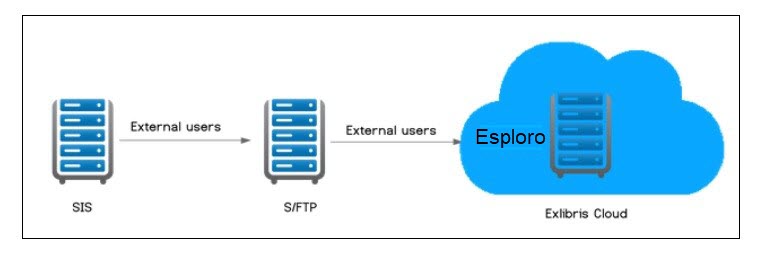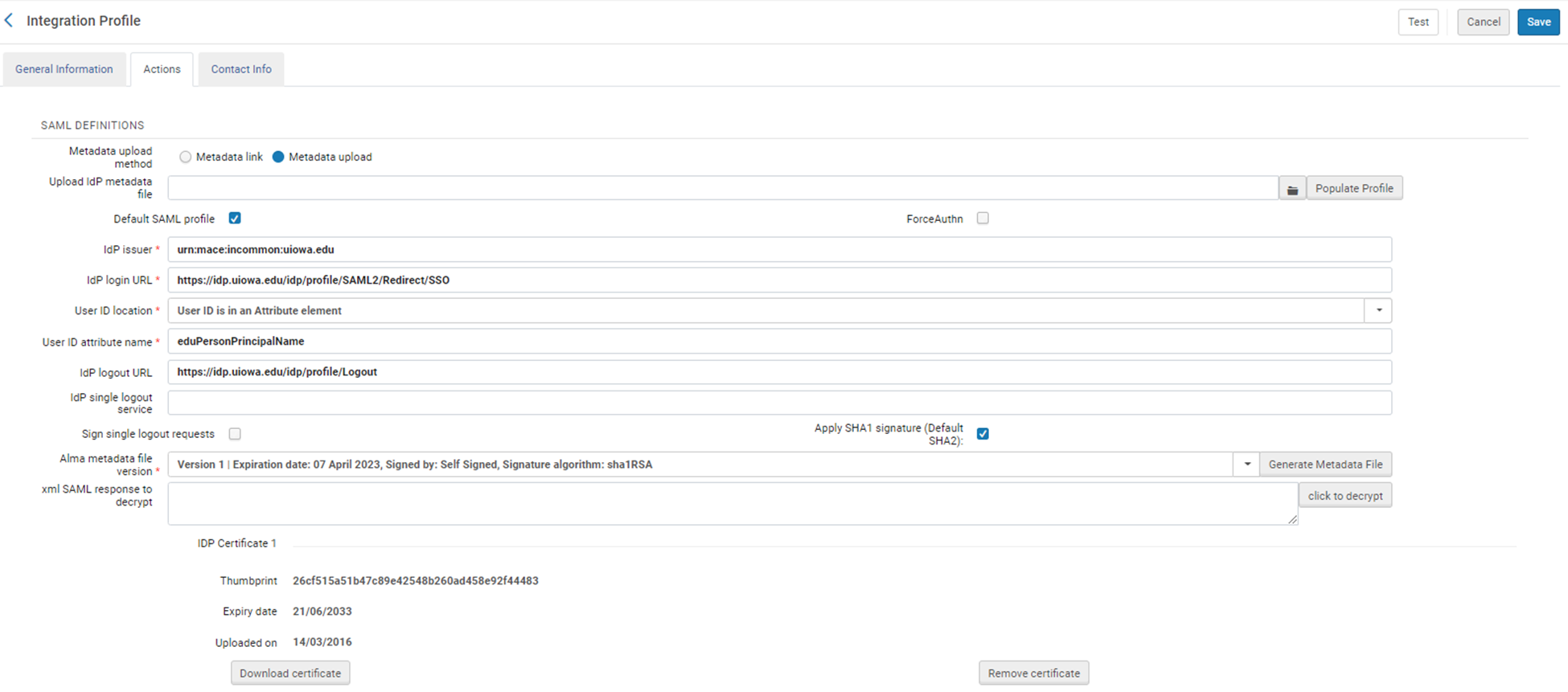Authentication for Esploro
How does Esploro authenticate users?
Esploro can authenticate users using either a federated single-sign-on authentication system (for example based on the SAML 2.0 browser SSO Profile), or using a non-federated authentication. Currently, non-federated authentication options include an LDAP-based authentication.
To go into a bit more detail, A SAML (see below for other SSO options) Integration Profile may be configured in Esploro. In this case, Esploro does not actively authenticate users. Instead, it turns to the configured SAML system to verify the user’s identity.
Esploro's implementation of SSO is based on protocols such as the SAML (2.0) protocol. Security Assertion Markup Language (SAML) is an XML-based open standard for exchanging authentication and authorization data between security domains, that is, between an identity provider (a producer of assertions) and a service provider (a consumer of assertions). SAML is a product of the OASIS Security Services Technical Committee.
Esploro utilizes the SAML protocol to communicate with any SAML-compliant system, enabling it to establish Single Sign On (SSO) with compliant systems, such as Shibboleth based systems, Microsoft Active Directory, and others that are SAML-compliant. This is illustrated below:
.png?revision=1)
.png?revision=1)
Alternatively, an LDAP Integration Profile may be configured in Esploro. In this case, the authentication of any external user will be done by Esploro using a secure protocol to directly communicate with the institutional LDAP server that is configured in the profile.
What authentication mechanisms are supported?
If researcher information is loaded into Esploro from the institutional system, it can be synchronized on a regular basis. It is possible to update an external user’s information manually in Esploro, but these updates are overridden by the next synchronization with the user information system. Authentication of external users is performed outside of Esploro —for example, in LDAP.

Esploro supports Secured LDAP authentication with the local LDAP server that is used as the authenticating server for staff logins.
Esploro's authentication architecture supports single sign-on (SSO), which uses the enterprise identity provider authentication system. In this architecture, Esploro delegates authentication to the customer's identity provider, whereby a circle of trust is built with the different domains. In this case (depending on the customer's identity provider being used), federation standards are applied.
Which identifier should be used for authentication?
Ex Libris recommends using the Primary Identifier of the user record as the identifier for authentication.

What authentication schemes are supported?
Esploro supports a number of authentication schemes, which are defined using Esploro’s Integration Profiles. An institution may choose to use more than one.
For Alma users, the authentication profiles are common between Esploro and Alma. This means that the profiles are editable both in Alma and Esploro. Therefore, changes to the authentication profile will be reflected in Alma, and the converse (from Alma to Esploro).
Supported authentication schemes include:
Portal and Profiles
Does Esploro support Federated Single Sign On using Shibboleth version 3?
Yes, we can work with Shibboleth version 3 using SAML 2.0.
How does Esploro manage authentication issues?
Esploro’s management of authentication issues is managed in a number of ways, all of which are aligned with Ex Libris’ design goal of standardizing integrations with third-party systems while allowing for local fine tuning, using the Integration Profiles framework:
1. Based on a secure connection to the institutional LDAP or Central Authentication Service (CAS) system. When an access attempt is made, Esploro sets up a direct secure link to the institutional LDAP server for obtaining access authorization.


2. Based on federated SSO authentication using protocols such as SAML, CAS or OAuth.
Does Esploro support standard authentication protocols?
Esploro’s authentication infrastructure makes use of integrations with identity providers systems, using standard protocols such as LDAP and SAML2. Integration with CAS in Esploro is also supported, as well as OAuth authentication with Facebook or Google. The Esploro integration is configured utilizing an Esploro standard configuration element – the Integration Profile. Below is a sample Integration Profile for setting Esploro integration with a SAML based IdP. Microsoft services, such as Active Directory Federation Services (ADFS2) and Unified Access Gateway (UAG) may be communicated with using SAML2. Shibboleth is also supported, if the institution’s Shibboleth implementation uses SAML 2.0.

Can there be multiple CAS profiles in a single institution?
A single institution may need to authenticate with two or more separate CAS IdPs and can do so by creating multiple CAS integration profiles. This is achieved by defining a /cas/[profile code] suffix in the Esploro URL. Esploro uses the profile identified by the URL. When using a URL without the profile code in the suffix, Esploro will use the CAS profile that is marked as the default.

